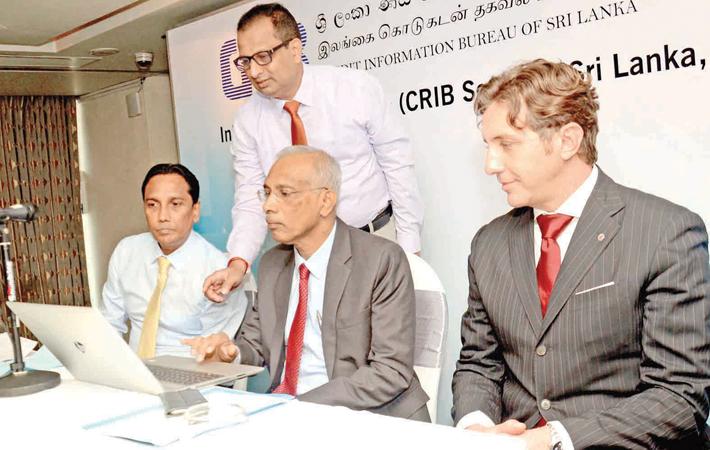
Sri Lanka should open more gates for credit disbursement with effective credit management policies breaking away from conventional thinking to spur economic growth, said a global expert in credit management at a forum in Colombo to launch the ‘CRIB Score’- Sri Lanka’s first credit scoring system last week.
He said being too conventional in credit management stifles growth in economic activities which require access to finance especially by the small and medium sector enterprises which lack assets to act as collateral for borrowing.
However, most lending institutions in Sri Lanka are collateral based lenders when the world is moving from physical assets to reputational collateral. Local lenders are reluctant to shift to ‘reputational collateral’ as they want to maintain low Non Performing Loan (NPL) ratios. Sri Lanka’s NPL ratio is around five percent which is above the global standard of three percent.
Creditinfo CEO Stefano Stoppani said sound credit management with initiatives such as the CRIB Score system which provides factual status of borrowers’ behaviour in past transactions will help reduce portfolio risk, lending cost and increased flexibility to expand access to credit to underserved segments of the market. Credit Information Bureau (CRIB) General Manager Nandi Anthony said that all systems and process are in place to introduce the credit score’ system in the country.
The CRIB Score is a number ranging from 250 to 900 which provides lending institutions a consistent indication of risk level, credit worthiness and probability of default of a borrower.
Credit scores help to speed up credit evaluation and granting of credit, propagate credit to the unbanked through the provision of ‘reputational collateral’ and help augment the credit and risk evaluation process of lending institutions resulting in healthier credit portfolios and low NPLs.
A credit score is a three digit number calculated using information from credit reports of individuals, businesses and institutions. A higher the credit score indicates lower risk to a lender while a low credit score indicates higher lending risk.
Borrowers with higher scores will find it easier obtaining loans with higher credit limits at lower interest rates.
However, a credit score is not static and would change over time based on the owner’s credit history and record.
The CRIB score is calculated based on an algorithm which incorporates key aspects of a borrower such as payment behaviour, over indebtedness, demographics and use of credit.
A new credit score is generated each time a lender requests the credit score of a particular entity from the CRIB. Borrowers have the opportunity of constantly improving their credit score. CRIB will also collect utility data which indicates how borrowers pay their electricity, water and telephone bills.
The credit score system will help improve the country’s ‘Ease of Getting Credit’ a sub index of the ‘Ease of Doing Business’ Index. Sri Lanka’s performance in the ‘Ease of Getting Credit’ index was behind its regional peers such as India and Pakistan ranking 124 in 2019.
CRIB scores of all individuals initially are made available to all lending institutions which are members of the CRIB. Borrowers too could obtain their credit scores through the CRIB or through their bank.
CRIB also plans to release credit scores for all corporates during the first quarter of this year.
The Bureau believes its credit reports with the credit scores will help bridge the information gap faced by lending institutions. The CRIB has partnered with Icelandic-origin Creditinfo International GmbH, which is incorporated in Germany and headquartered in Prague, Czech Republic, to develop the score system and has invested over Rs. 500 million in a three-year plan to switch to the new system by late this year.
